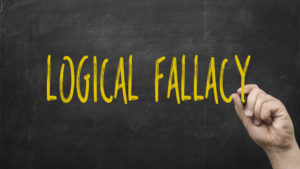Podcast: Play in new window | Download (Duration: 38:09 — 43.7MB)
 In this episode, I am going to discuss an aspect of knowledge that many people these days are not aware of, yet it has immense importance for our political freedom, and our ability to argue for freedom. It can also leave us vulnerable to a serious logical fallacy, and affects our ability to truly understand the ideas we claim to hold as true. I am talking about the hierarchical structure of knowledge.
In this episode, I am going to discuss an aspect of knowledge that many people these days are not aware of, yet it has immense importance for our political freedom, and our ability to argue for freedom. It can also leave us vulnerable to a serious logical fallacy, and affects our ability to truly understand the ideas we claim to hold as true. I am talking about the hierarchical structure of knowledge.
When this natural hierarchy is ignored, people believe in ideas that contradict the logical base of all human thinking and knowledge without seeing the logical fallacy they have fallen for. This can leave minds in a mess of unidentified contradictions. If we are truth seekers concerned for our political freedom, this is not good enough. We must be able to argue effectively for rights — which is the only means to freedom. If you wish to be a spokesperson for freedom, and to think efficiently and logically, you need to be familiar with the hierarchical structure of knowledge.
Western culture is in deep trouble. Most people don’t know what’s going on, and those who begin to inquire, have lost the thinking skills to evaluate ideas effectively. In disregard to the hierarchy of knowledge people get suckered into believing great sounding ideas, such as “You can do anything, your thoughts create your reality” but people don’t see that this philosophical primacy of consciousness implicitly contradicts the concept of truth, and destroys any chance of freedom. I covered this and other ideas in Episode 160 of the podcast, Dangerous False Ideas.
It’s also common to find that people cannot justify their conclusions; they cannot fully explain why they hold an idea to be true. Although this sounds like a different problem, it’s rooted in the same failure to appreciate the hierarchical structure of knowledge, and thus the same failure to trace the ideas they hold back to their roots at the perceptual level.
This problem in our thinking is hardly surprising. For many decades now, since Emmanuel Kant in the late 18th century, our leading intellectuals and philosophers have been declaring that reality is an unknowable illusion, and that the mind is impotent. Yes, our leading intellectuals have for a long time, been practicing serious intellectual dishonesty by disseminating these ideas that deliberately violate the hierarchy of knowledge.
Most people do not genuinely understand the big issues of today that affect our political freedom, such as the alleged climate emergency and the alleged pandemic. They simply hold a set of inconsistent and contradictory beliefs. For example, being an advocate of freedom, yet thinking capitalism is evil. To genuinely understand the conceptual ideas you consider to be true, you must be able to connect them back to reality, to make them fully real and give them their meaning. This is what it means to understand an idea. It must be integrated without contradiction into the sum of one’s existing knowledge and connected to the facts of reality, in order to give it meaning. Only when this has happened, can the idea be explained to others.
The Foundations
All knowledge fits into a contextual structure that starts with the observation of reality, observing the world around us, and forming concepts of all the things we perceive. This ultimately includes concepts of existent things as well as attributes, actions and spatial as well as temporal relationships. Only when we have grasped the most basic concepts of individuals concretes, can further concepts be formed by observing the similarities and differences between those already formed.
All of our knowledge follows the same pattern as the formation of individual concepts. It builds upon itself, one step at a time. We learn the foundational things first, and we build on these foundations. We can’t begin by studying for a degree, and finish up by learning the alphabet! We have to start at the beginning, and build up to the increasingly complex. The complexity is increased by forming concepts from concepts, and drawing both wider and narrower abstractions.
In her book “Introduction to Objectivist Epistemology” An Rand explains;
“Observe that the concept “furniture” is an abstraction one step further removed from perceptual reality than any of its constituent concepts. “Table” is an abstraction, since it designates any table, but its meaning can be conveyed simply by pointing to one or two perceptual objects. There is no such perceptual object as “furniture”; there are only tables, chairs, beds, etc. The meaning of “furniture” cannot be grasped unless one has first grasped the meaning of its constituent concepts; these are its link to reality.”
It can be helpful to think of the sum of your knowledge as a massive skyscraper. Such a building rests on firm foundations and then every part of its structure gets added on top of that. The entrance lobby rests on the basement and foundations, and the top floors rest on the whole structure. In the same way, complex conceptual ideas are supported by simpler but logically antecedent conceptual ideas.
Of course, some ideas are at an equivalent position in the hierarchy, like two different offices on the same floor of the skyscraper. But the important point to get here is the necessary vertical relationship between conceptual ideas. For example, consider that the idea of a bachelor necessarily rests on the idea of marriage. If there was no such thing as marriage then the idea of being a bachelor (or a spinster, for that matter) would have no meaning.
Higher up the Hierarchy
From “Introduction to Objectivist Epistemology”, Ayn Rand continues.
“Starting from the base of conceptual development—from the concepts that identify perceptual concretes—the process of cognition moves in two interacting directions: toward more extensive and more intensive knowledge, toward wider integrations and more precise differentiations. Following the process and in accordance with cognitive evidence, earlier-formed concepts are integrated into wider ones or subdivided into narrower ones.”
When we consider complex ideas containing multiple higher concepts, there are necessarily a great many previous, more fundamental concepts ‘underneath’ the ones being considered. These antecedent concepts are implicitly assumed, just like the lower floors of a tall building are assumed when you stand on one of the floors above.
Consider these further examples. The concept of motion implies and necessitates the antecedent concept of entity — or the thing that moves. The concept of change implies the concept of identity and the concept of time — that identity then, this identity now.
On a more day-to-day level, when you go to your doctor to consult him on some illness, what is the theory of health and disease from which his thinking stems, and on which his education was based? These ideas will necessarily inform his whole process of diagnosis and treatment. His conclusions in this area lie at the base of his whole approach to medicine, and will inform how he proceeds to try and help you.
Higher Abstractions Still
The hierarchy of knowledge has huge implications for all of us concerned with freedom, because concepts such as freedom and rights are quite high level abstractions, the precise meanings of which are are not at all obvious. Their meaning has to be conceptually grasped by integrating many lower level conceptual ideas. Rights are a moral concept defining and sanctioning the actions of individual men in a social context. To begin to trace this concept back to its roots in reality we must first be aware of morality and the purpose it serves human life. A morality is a code of values (or ethics) to guide the choices and actions that shape an individuals life. Underneath this, we have conceptual ideas, of choice, of alternatives, of values, of consequences. In order to fully understand what rights are, its quite a long conceptual path to trace our understanding back to facts of reality. However this is precisely what must be done by every freedom advocating activist, in order to know exactly what you are talking about!
Consider that every system of politics implicitly rests upon a system of morality (or ethics). Politics is the science that deals with how men should act with respect to one another in a social context. Morality is the science of how the individual man should best act in support of his life and its enjoyment. It is logical that one should first decide how the individual man should best act on his own, before approaching the question of how he should act in a social context. In other words, a proper code of morality must come first. Or to put it another way, when considering political ideas, it is very important to see that a particular political theory comes from a specific system of morality. Collectivism comes from altruism, freedom comes from rational egoism.
Our political freedom is fast being lost. These days we are having to take positive action to preserve what freedom we have left. This involves being able to reason for freedom and argue for it with clear logically presented ideas. It is therefore imperative that we fully understand that which we are arguing for. But most freedom fighters don’t properly understand the concept, and therefore stand no chance of successfully achieving it. For example, if you haven’t grasped that freedom is inherently selfish — and rightly so — because it stands on a morality of rational egoism, which means being left alone to act on one’s own judgment, then you will continue to argue against the proper system of ethics that leads to freedom — namely, rational egoism!
Freedom fighters need to be fully aware of the hierarchical structure of knowledge so that they can relate these higher level concepts all the way back to the facts of reality, understand them fully, and be able to argue for them effectively.
Our concepts are the units of our thinking — each one an idea in itself. If we are unaware of the hierarchical structure of knowledge, the higher (more abstract) concepts we use, such as prosperity, wealth, democracy, individualism, become like floating balloons (abstractions) in our minds. They float freely, disconnected from the antecedent concepts that provide the context to give them precise meaning.
Definitions are important because if the units of our thinking are loose and ill-defined, the efficiency with which we arrive at conclusions is necessarily compromised. But if the hierarchical structure of knowledge is not respected, and we do not know how each of the concepts we use reduces back to reality, then our concepts are completely emptied of meaning! they become disconnected from the conceptual context that can give them meaning.
As we grow and learn, moving from infancy through childhood and to functional adulthood, we are constantly updating our mental map of reality. Our minds should properly be seeking to integrate all the information we hear into one consistent and non-contradictory reflection of the world ‘out there’. Our knowledge is like a vast 3-d mental map of the terrain. And the terrain is the world we live (in including the actions of all the people within it) with both horizontal and vertical integrations, forming a vast and complex hierarchical structure. Awareness of this process helps to keep our knowledge grounded in reality, support genuine understanding.
Up-side-down Thinking
 When we ignore or fail to grasp the hierarchical structure of knowledge we can, literally, get our thinking upside-down. We can find ourselves unwittingly treating a relatively high level concept as a fundamental, or a starting point for a line of reasoning. And from there, argue against more fundamental concepts we are already implicitly using in our argument! An example of this is when people tell you that you can’t prove that existence is real, and suggest that it is all an illusion. In this example, the concepts of proof and of illusions are both higher level concepts that rest on the axiom that existence exists — i.e. is real!
When we ignore or fail to grasp the hierarchical structure of knowledge we can, literally, get our thinking upside-down. We can find ourselves unwittingly treating a relatively high level concept as a fundamental, or a starting point for a line of reasoning. And from there, argue against more fundamental concepts we are already implicitly using in our argument! An example of this is when people tell you that you can’t prove that existence is real, and suggest that it is all an illusion. In this example, the concepts of proof and of illusions are both higher level concepts that rest on the axiom that existence exists — i.e. is real!
Another example is when people claim that consciousness creates reality — the primacy of consciousness. In this case, the objective nature of reality is denied by implication. Yet acceptance of the objective nature of reality is the basis of all knowledge. The law of identity states that things are what they are, A is A, irrespective of anyone’s thoughts, feelings, wishes, whims or fears. The law of identity is axiomatic and right at the base of thinking. You have to use it, even in the process of arguing against it!
The Fallacy of the Stolen Concept
 Ayn Rand was the first philosopher to identify the hierarchy of knowledge, and also the resulting logical fallacy that she called the fallacy of the stolen concept. This fallacy consists of using a concept while denying or ignoring the logically antecedent concepts upon which the concept one is using depends. The concept is being used without any epistemological right to it — hence the term stolen concept.
Ayn Rand was the first philosopher to identify the hierarchy of knowledge, and also the resulting logical fallacy that she called the fallacy of the stolen concept. This fallacy consists of using a concept while denying or ignoring the logically antecedent concepts upon which the concept one is using depends. The concept is being used without any epistemological right to it — hence the term stolen concept.
Returning to the metaphor of knowledge as a very tall skyscraper helps to illustrate the absurdity of this fallacy. Imagine standing on the top floor of such a building while arguing against the existence of the floors beneath! When we argue using high level concepts we are necessarily standing (intellectually) on all the concepts beneath and ultimately on the law of identity at the foundations.
Let’s look at some examples of the stolen concept.
Examples
Consider the well known anecdote “All property is theft” by a french anarchist Pierre-Joseph Proudhon in his 1840 book ‘What is Property?’ This phrase is nonsense because the concept of theft is necessarily derived from the concept of property. If there were no such concept as rightfully owned property, there could not be a concept of theft. The phrase ‘all property is theft’ is meaningless. It’s an example of up-side-down thinking.
Some people today ask the question “How do you know there is an external world?” meaning how do you know that anything exists except consciousness? Here, the stolen concept is knowledge. You can’t speak of knowledge while denying existence and consciousness. The axioms of existence and consciousness are the philosophical bedrock on which the concept of knowledge stands. Without existence what could there possibly be knowledge of?
In the question “How do you know that reality isn’t all an hallucination?” the concept of hallucination is the stolen concept. An hallucination can only be defined in contradistinction to normal perception of reality. If you are questioning reality you have no right to speak of hallucinations. You are, again, arguing against that which you are intellectually standing on.
In the questions “How do you know that you are conscious?” or “How do you know you exist?” the stolen concept is knowledge. Once again, the axioms of existence and consciousness are the philosophical bedrock on which the concept of knowledge stands. If you haven’t yet established your own existence, you are in no place to be discussing the concept of knowledge! The concept of knowledge can only have meaning in the context of existence (something to know) and of consciousness (someone to know it).
The Latin ‘cogito, ergo sum’, usually translated into English as “I think, therefore I am”, is the “first principle” of René Descartes’s philosophy that was originally published in French as “je pense, donc je suis” in his 1637 Discourse on the Method. This phrase is yet another example of illogical nonsense because thinking is a very high level sophisticated concept. Thinking refers to the specific mental activity of reasoning purposefully towards a goal. It is a form of mental activity distinguishable from others such as remembering, worrying, or imagining, etc. It is not logical to be holding ones existence in doubt which using such a high level concept which assumes a vast number of antecedent concepts, all of which rest on the law of identity and the axioms of existence and consciousness.
Summary
All of the claims you may hear that consciousness creates reality, or postulating that everything is an illusion, or is an hallucination or is imagined into existence; all of these are logical fallacies based on the denial of the hierarchical structure of knowledge.
They all implicitly deny the objective nature of reality and therefore undermine the concept of truth. This is why the hierarchical structure of knowledge must be known about and respected. If we wish to know what is true, we cannot allow sophists and propagandists to spread these ideas that undermine our cause at the very foundations!
It cannot be overstated how important it is for all truth seekers, and anyone who cares about political freedom to clearly grasp that these ideas implicitly undermine truth, freedom, and even rational discourse. Great care must be taken to make sure that the thinker stands on firm epistemological ground of the law of identity, and make explicit the fact that reality is an objective absolute.
How the Mind Works
 In order to reinforce our understanding of how important it is to appreciate the hierarchical structure of knowledge, and to make sure that we do not fall into the mental habit of the fallacy of the stolen concept, we must look briefly at how the mind works. This is because there is a widely held belief that undermines the concept of knowledge being stored according to a logical hierarchy.
In order to reinforce our understanding of how important it is to appreciate the hierarchical structure of knowledge, and to make sure that we do not fall into the mental habit of the fallacy of the stolen concept, we must look briefly at how the mind works. This is because there is a widely held belief that undermines the concept of knowledge being stored according to a logical hierarchy.
This belief is that the mind works by association — meaning that ideas are stored based on being associated with other ideas. This is true, in as much as the mind defaults to this mechanism in the absence of a logical connection. But the default is far from being the proper method since it cannot foster understanding.
We have all had the experience of a particular memory being triggered by a specific situation, or piece of music, or an image, or even a fragrance. But its not the complete picture of how our human form of consciousness is best operated.
Associative Thinking
Association does play a part in our thinking, and can be used to effectively brain storm ideas for creative purposes. This is because logically related ideas are necessarily associated with each other, but the converse is not necessarily true. Associated ideas may or may not be logically related. Ice cream sales correlating with shark attacks is an association by virtue of both happening in summer months, but the connection is not logical. Logical connection is stronger than association because it affords understanding. Items on a list are associated by virtue of the list, but remembering the list will be harder than to remember a series of logically connected items or events.
Logically connected ideas ARE necessarily associated,
but associated ideas are NOT necessarily logically connected.
If ALL the ideas you hold are logically linked down to the self-evident perceptual base in reality, AND they are linked to one another as well by horizontal and vertical integration. Then they will necessarily be associated. When I say horizontal and vertical integrations I mean joining the dots in your mind, by looking for, and seeing, the connections. This requires conscious effort and a deliberate choice to think. These integrations and connections will not happen automatically! But the benefit of initiating this mental process is not only achieving clear understanding, but also that the presence of any potential contradiction can be seen, which can serve to flag an error in our reasoning. The contradiction signals that an idea doesn’t fit, and something needs to be checked.
 Associative thinking alone, doesn’t give you the solid understanding that a logically connected thinking gives you. It doesn’t enable you to connect ideas back to reality, but only to associate them with other ideas, which themselves may not be clearly understood. If you are focusing on a number of ideas that are associated with each other, they could all be false, and the contradictions to other facts of reality may not be noticed.
Associative thinking alone, doesn’t give you the solid understanding that a logically connected thinking gives you. It doesn’t enable you to connect ideas back to reality, but only to associate them with other ideas, which themselves may not be clearly understood. If you are focusing on a number of ideas that are associated with each other, they could all be false, and the contradictions to other facts of reality may not be noticed.
Associative thinking is a method that gets you only half the way there. The danger of believing that associative thinking is how the mind works, sidesteps the proper method of proactively looking for logical connections. Which is the only way to ensure that your conclusions are true. Ultimately, all the ideas you hold must be connected to reality. If, in your mind, they are not, then understanding hasn’t been achieved, and you simply hold some chosen beliefs.
Something I learned from objectivist writer Craig Biddle, is that when we say that something ‘makes sense’, it means that the idea in question ‘makes it to the senses’. It means that the idea can be traced back to the facts of reality, and thus related to the world. “Yeah, that makes sense!” is a kind of Ah Ha moment when the last conceptual penny drops. It means that the idea being considered has been logically integrated, it is now connected to the rest of our understanding of reality, it fits logically with all the other ideas that person knows to be true.
Conclusion
The current state of human thinking in general, is abysmal. Probably due to many decades of education that ignores and violates the hierarchy of knowledge, and a host of other factors. Many people cannot spot logical fallacies at all, let alone the more sophisticated ones such as the fallacy of the stolen concept. But the root of all clear and efficient thinking is grasping that it all rests on the self evident, and the law of identity.
It is difficult to conclude that current western civilisation will avoid the impending collectivist tyranny while so few people can think effectively and therefore be in a position to defend the concept of rights — the only means to political freedom.
Unsurprisingly, at least part of the solution lies in recognising the hierarchical structure of knowledge. This means developing an awareness of which ideas are primaries (lower level concepts nearer to the perceptual level), and which are derived (the higher level complex concepts).
It is important to bear in mind that the concept of proof is a form of validation using inference from other previous knowledge. The self-evident is a more basic form of validation, and is what the concept of proof ultimately rests on. This means that to demand proof of something self-evident is a contradiction, and an example of up-side-down thinking.
I recommend that you become familiar with the law of identity, and the axioms of existence, consciousness, and identity. When we grasp that these are the irreducible base of all human knowledge, and that ALL of our concepts rest on these, it is easier to spot the many examples of the stolen concept that we hear today in philosophical ideas that destroy the concept of truth.
The best thing that we can all do to ensure peace and freedom, is to sharpen our own minds, and take up the challenge of being one of the new citizen intellectuals that are so desperately needed. To do this you must learn to think efficiently. The links below may be helpful.
Resources:
Ep 165 – Epistemology, the fundamentals of how to know what is true.
Ep 152 – Warning all truth seekers; don’t make these two mistakes.
Ep 147 – Foundations of truth; the premises on which the concept must necessarily stand.
Check out this post — Lisa VanDamme on the Hierarchy of knowledge.
From my Blog – A method to find truth.
Examples of the stolen concept are taken from Nathaniel Branden in his lecture on the fallacy of the stolen concept in the course ‘The principles of efficient thinking’. Excerpts of that course can be found here.
I also draw heavily on the ideas of Ayn Rand in all my work. For serious thinkers I recommend her book called the ‘Introduction to Objectivist Epistemology‘
I also recommend visiting the The Culture of Reason Center who are a great resource for thinking skills.
Nigel,
Just wanted to take a second to thank you for your content. In trying to understand the world today, your insights into philosophy and thinking have helped me communicate better with people who are not thinking for themselves. The emotion vs reason was a game changer in helping me remain calm while having discussions with emotional people who constantly contradict themselves. I hope you are proud of your work and continue seeking the truth. I am better equipped to help people and as a result lead a more purposeful life thanks to you.
Nick Warren
Thank you very much Nick.
I am greatly pleased that anything I have done has helped, and also that there are people other than me who see the relevance and importance of these issues.
Nigel Howitt